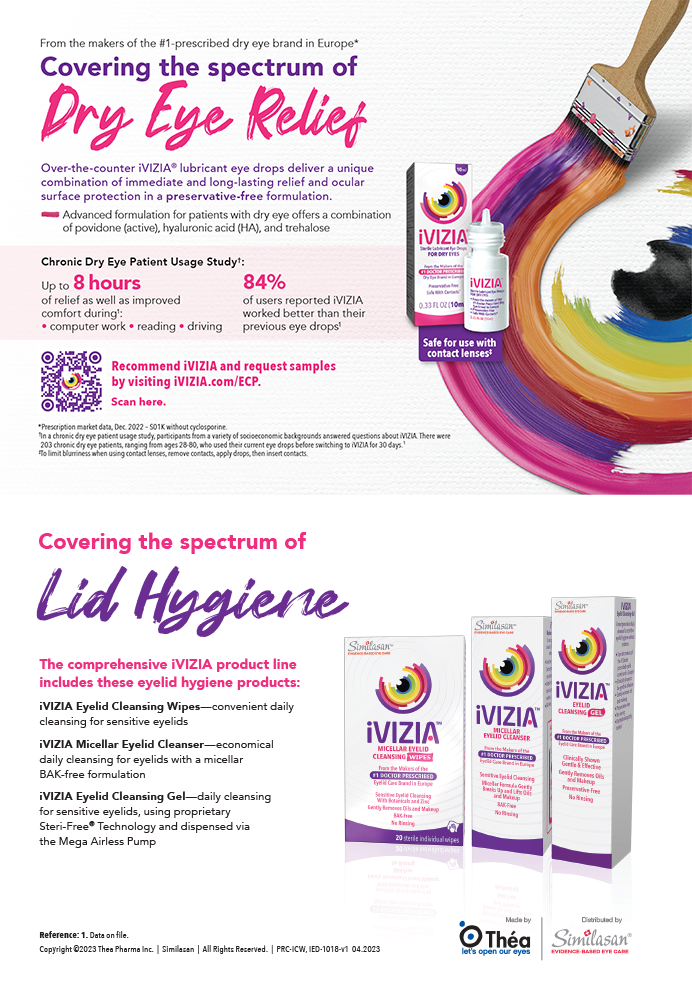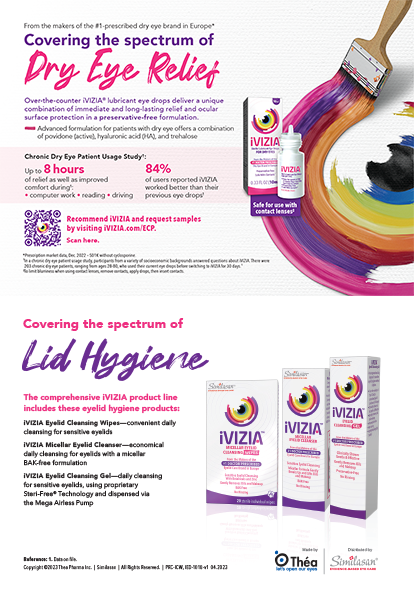| This month's international article features the amazing growth of Unite for Sight. This organization started with Jennifer Staple as a one-woman program that coordinated free eye screenings in New Haven, Connecticut. In a few short years, it has grown into a substantial international movement, harnessing the enthusiasm of young people around the world. I am proud to serve as a member of Unite for Sight's medical board and, I hope that you will be as impressed with this organization's accomplishments as I am. |
| —Geoffrey Tabin, MD, Section Editor |
Every year, 250 undergraduate and medical students leave their campuses to participate in international eye care programs in developing countries. They arrive at clinics armed with enthusiasm, a solid knowledge of ocular health received through a stepwise training program, and a suitcase of donated supplies for the clinic. In addition to helping ophthalmologists at the clinics, the volunteers travel with the clinics' optometrists and ophthalmic nurses to remote rural villages, most of which can only be reached by unpaved roads, to participate in outreach programs and to help people who otherwise do not have access to eye care. These volunteers are the foundation of a unique humanitarian organization called Unite for Sight.
SMALL START
Unite for Sight began in September 2000 as a small idea. Equipped with a Snellen chart, I founded the 501(c)(3) nonprofit organization while I was a sophomore at Yale University in New Haven, Connecticut. The previous summer, I had worked as a clinical ophthalmology research associate at Danbury Eye Physicians and Surgeons in Connecticut. As I interacted with patients who had gone blind from glaucoma, I learned how early medical intervention could have prevented their vision loss. These patients' stories helped me recognize the need for community-based eye health programs and motivated me to found Unite for Sight. For the next 3 years, the organization's workforce included 35 volunteers who provided screening and educational services in New Haven's soup kitchens and libraries.
Since 2003, Unite for Sight's membership has grown to a force of 4,000 volunteers worldwide. Doctors, nurses, undergraduate and medical students, and educators work together locally and internationally to fight blindness.
IMPROVING ACCESS TO EYE CARE
Unite for Sight currently has 55 chartered chapters at colleges and medical schools in the US. Each chapter is overseen by a local eye care professional who helps students and other volunteers organize vision screenings and educational programs at community centers, homeless shelters, schools, libraries, and free health clinics. Volunteers also match uninsured patients who cannot afford an eye examination with free or low-cost programs such as the AAO's National Eye Care Project, and they raise funds for Unite for Sight's international eye care and outreach programs. Since the organization launched its first international program 3 years ago in Ghana, it has provided services to more than 400,000 people worldwide. By the end of 2007, Unite for Sight is projected to complete more than 12,000 sight-restoring surgeries in developing countries.
EXPANDING INFLUENCE
In January 2005, Unite for Sight established the first eye care presence at Buduburam Refugee Camp in Gomoa, Ghana. Located an hour's drive from Ghana's capital city of Accra, this 120-acre camp was established in 1990 by the government of Ghana to host refugees fleeing the civil war in Liberia. Like all of Unite for Sight's international programs, the one at Buduburam was initiated to meet the urgent needs of the 45,000 people who did not have access to eye care.
James Clarke, MD, Medical Director of the Crystal Eye Clinic in Accra, Ghana, leads Unite for Sight's program at Buduburam Refugee Camp (Figure 1). Dr. Clarke trains residents of the refugee camp to recognize the symptoms of common eye conditions. Several times a month, his ophthalmic nurse, Margaret Duah-Mensah, visits the refugee camp to examine the potential patients identified by the local volunteers (Figures 2 and 3). Those who need treatment or surgery are sent to the Crystal Eye Clinic, where Unite for Sight funds all of their care.
The program at Buduburam Refugee Camp is so successful that patients from the neighboring country of Liberia, which only has one ophthalmologist to treat its entire population of 3.5 million people, reportedly travel to the camp solely to have their sight restored through Unite for Sight's program.
A 10-hour drive from Buduburam in Tamale, Ghana, Seth Wanye, MD, provides eye care for more than 2 million people. Before he partnered with Unite for Sight, Dr. Wanye often went months without performing a single cataract surgery, because patients did not have access to or could not afford surgery. Volunteers from Unite for Sight now work with him to train staff, assist with surgery, establish screening and outreach programs, provide clinical equipment, and cover the expenses for outreach patients' care.
Since May 2006, Dr. Wanye and his staff at the Eye Clinic of Tamale Teaching Hospital and Unite for Sight's volunteers have screened 22,879 patients in rural villages (Figure 4), referred 648 trachoma patients for treatment, distributed more than 6,000 pairs of eyeglasses, and performed 975 sight-restoring surgeries.
"Unite for Sight volunteers have come to give hope to the people of Tamale and Northern Region, and all of us appreciate the wonderful work these volunteers are doing for these poor and vulnerable people who otherwise would not have access to quality eye care services," wrote Dr. Wanye in an online testimonial.1
VOLUNTEERS SPEAK OUT
Volunteers benefit from their collaboration with eye care providers who work at clinics supported by Unite for Sight. They immediately see the success of their work in the joyful smiles of patients whose sight is restored after many years of blindness. In addition to helping the community, volunteers learn firsthand about the failures and inequities that plague the health systems in developing countries. Working with Unite for Sight gives them an incentive to help doctors provide much needed eye care and to build healthcare systems that can prevent blindness.
"I found Dr. Wanye and the Tamale Eye Clinic staff truly inspirational," wrote Michael Chen, a fourth-year medical student from the University of California Los Angeles David Geffen School of Medicine, on Unite for Sight's Web site.1 "Amidst the many obstacles and frustrations in providing eye care to the people of [Tamale], he and his staff continue to labor with patience and compassion, often making personal sacrifices for the benefit of the patients. Their attitude has certainly given me something to aspire to in my future career."
After participating in Unite for Sight's program in Chennai, India, volunteer Hibah Ayaz, an undergraduate from Union College in Schenectady, New York, wrote, "An experience like this really makes you appreciate the little things in life that most of us take for granted. To those of us that have been blessed with sight, let us not close our eyes to the people of this world that are living in darkness. They are in dire need of our support. With organizations like Unite for Sight, together, we can all make a difference in the world. I am so thankful to have gone on this adventure because the closed eyes of my heart have now been opened. As they say in Chennai, nandri (Tamil for thank you) to Unite for Sight for changing my life, and improving the lives of thousands around the globe."1
SEEKING GLOBAL SOLUTIONS
As Unite for Sight's efforts spread beyond New Haven, I recognized a need for an interdisciplinary forum in which eye care professionals, volunteers, and individuals interested in promoting global health and eye care could exchange ideas. This goal was realized in April 2004 with the inauguration of Unite for Sight's Annual International Health Conference.
The organization's Fourth Annual Conference was held in Palo Alto, California, at the Stanford University School of Medicine from April 14 to 15, 2007. Approximately 1,500 doctors, professionals, and students attended the event, which featured 284 speakers from 11 countries. Participants traveled from India, Pakistan, Nepal, Thailand, China, Ghana, Sudan, Rwanda, Ethiopia, Nigeria, Sierra Leone, Kenya, Mexico, Bolivia, France, the United Kingdom, Poland, Australia, Canada, and across the US to discuss "Advancement, Innovation, and Best Practices to Achieve Global Goals."
In addition to presentations by experts involved in ophthalmology, global health, international development, and social entrepreneurship, the annual conference featured talks by Unite for Sight's volunteers. One such presentation by Michael Nedelman, an undergraduate from Yale University who spent 6 weeks in Chennai, India, in 2006, highlighted the unique opportunities available to people who participate in the organization's outreach programs.
He developed "Project Phokas," through which he distributed cameras donated by the Eastman Kodak Company (Rochester, NY) to cataract surgery patients immediately after their sight was restored. Although most of these individuals had been blind for years and had never used a camera, they produced beautiful, striking, artistic photographs that have been exhibited at several universities in the US. Unite for Sight named Mr. Nedelman Volunteer of the Year for 2006 in recognition of his efforts to raise public awareness of international eye care.
Unite for Sight is preparing for its Fifth Annual International Health Conference, which will be held at Yale University from April 12 to 13, 2008. In the meantime, the organization is looking for ophthalmologists and volunteers to provide training and surgical services at its partner clinics in Ghana and India. The organization also accepts donations of gently used eye equipment such as ophthalmoscopes and operating microscopes for use in its international eye clinics.
CONCLUSION
Unite for Sight encourages students, youth, and eye care professionals to join forces to prevent blindness in their local communities and abroad. Hundreds of thousands of patients are now receiving eye care because of the successful partnership between Unite for Sight's volunteer force and the dedicated work of eye clinic doctors and staff who devote every day to preventing blindness and restoring sight among those living in extreme poverty.
Jennifer Staple is Founder, President, and CEO of Unite for Sight. She is a third-year medical student at Stanford University School of Medicine. Anyone who is interested in becoming involved with Unite for Sight or attending next year's conference may visit the organization's Web site at www.uniteforsight.org or contact Ms. Staple at jstaple@uniteforsight.org.


